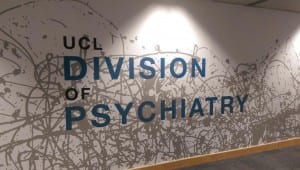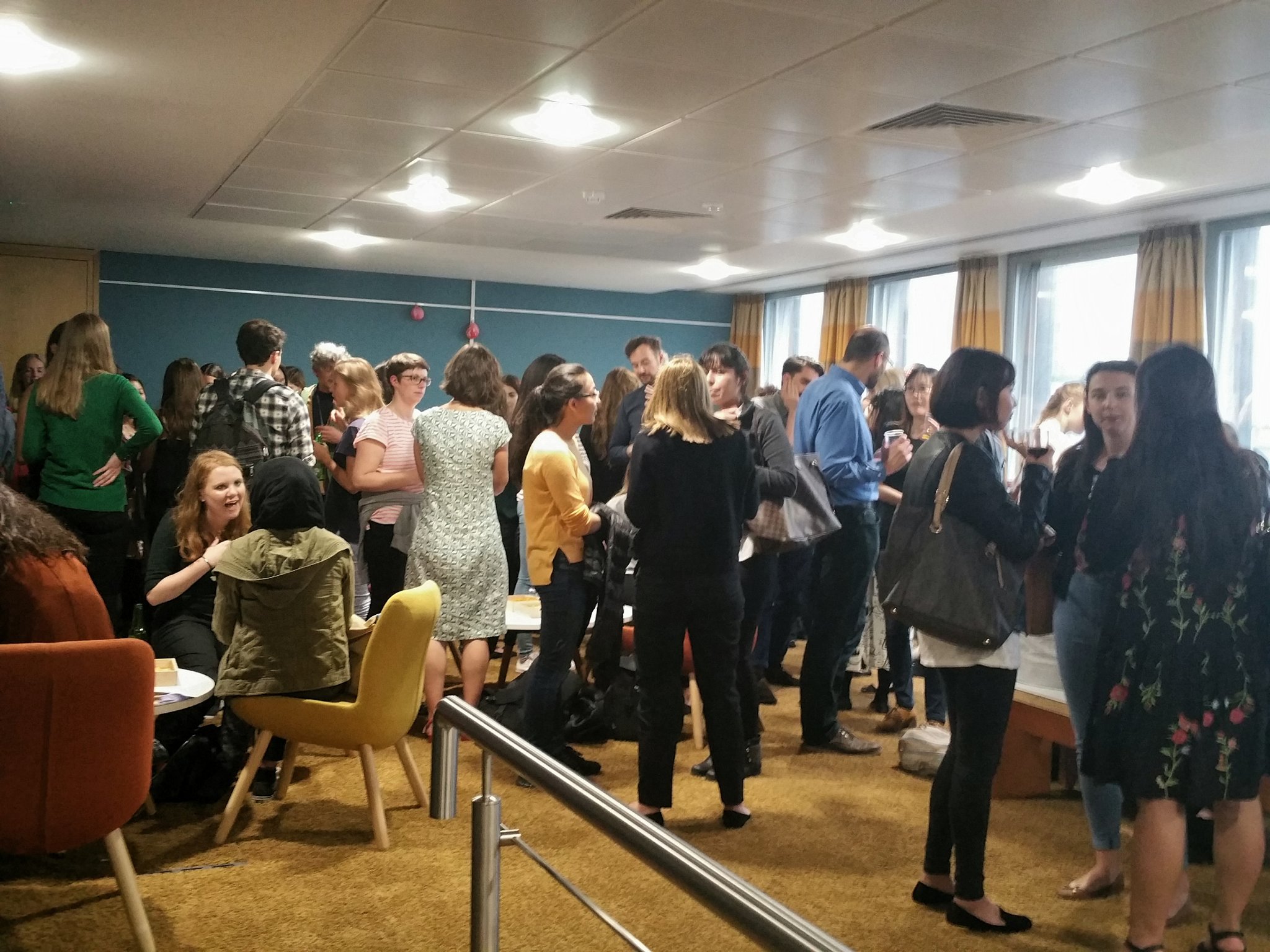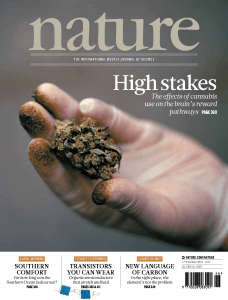But what about us? Fathers’ experiences of perinatal mental health care
Billie Lever Taylor & Sonia Johnson



Posted on International Fathers’ Mental Health Day – June 17th 2019
“All the help and people just looked at Nadia*. They’ve not looked at me. I mean, not asked ‘Oh how are you feeling?’ And stuff. Nothing. It’s just all Nadia.”
When Adam’s partner Nadia was diagnosed with postpartum psychosis sho
 rtly after their baby was born, Adam found himself caught up in the crisis. He wanted help himself – and wanted to know how best he could help Nadia. But like many fathers in our research on experiences of perinatal (during and after pregnancy) mental health care, he felt excluded. “I would have liked to have come to the first meeting when she first met [her care coordinator] and then they could say ‘Right, I’m so and so. This is what I do. This is what I’ve studied…This is the plan, what I’m going to do with Nadia.”
rtly after their baby was born, Adam found himself caught up in the crisis. He wanted help himself – and wanted to know how best he could help Nadia. But like many fathers in our research on experiences of perinatal (during and after pregnancy) mental health care, he felt excluded. “I would have liked to have come to the first meeting when she first met [her care coordinator] and then they could say ‘Right, I’m so and so. This is what I do. This is what I’ve studied…This is the plan, what I’m going to do with Nadia.”
There is increasing recognition that healthcare professionals supporting women with mental health difficulties in the perinatal period need to ‘think family’: fathers both affect and are affected by mothers’ perinatal mental health. Also, mental health difficulties among fathers as well as mothers are linked to emotional and behavioural problems in children, particularly where parents experience relationship conflict.
Our research, led from UCL, suggests that – in the UK and internationally – partners, fathers and wider families feel marginalised by services treating perinatal mental health difficulties. Our findings are based on in-depth interviews with over 50 mothers across England, who received NHS support for a perinatal mental health difficulty. These interviews were carried out in the Stacey study, which was part of a bigger investigation of care for mothers with mental health problems called the ESMI programme. We also spoke to over 30 of their partners (including same-sex partners) or other family members (for example, where mothers did not have a partner). And we reviewed international research on the topic. We focus here on fathers, who were the biggest group of family members we spoke to.
We found that, even though it was the mothers who had been diagnosed with perinatal mental health problems, their difficulties often arose within a fraught interpersonal and social context. Often, the whole family was struggling. Fathers could play an important role in supporting mothers – and encouraging or sometimes discouraging them from seeking help. But, despite their importance, fathers were not routinely included in appointments. There was little acknowledgement of their needs or support for them – either to help them support the mother, or to help with their own struggles.
Although healthcare professionals were seen as dedicated and hardworking, services were structured in ways that excluded fathers. For example, many only offered appointments during working hours, making it difficult for fathers to attend. Professionals did not always have the resources or skills to work with families – and sometimes struggled to include fathers, while still protecting the needs of mothers and babies.
Inpatient mother and baby units were described as better than other services at including and supporting fathers. But admissions separated mothers and babies from fathers (and wider family networks) without always recognising the impact of this or offering help to cope with it. Fathers could also find themselves with older children to look after on their own and juggling multiple demands.
We found that both mothers and fathers had anxieties about the impact of more involvement and support for fathers. Complex and sometimes delicate family situations could mean that some mothers did not want their partners involved. For fathers, views of masculinity made it hard for them to acknowledge their needs or ask for support. This also played a role in professionals excluding fathers – which could then further encourage fathers to see their own needs as insignificant.
It seems likely that the exclusion of fathers is linked partly to wider assumptions about motherhood and fatherhood. Western cultures increasingly recognise more diverse family set-ups and there have been drives towards greater gender equality. But even so, mothers and mother-infant bonds are still seen as most important for child development, with fathers seen as secondary. Mothers are expected to be natural nurturers and to bear most responsibility for the developing infant. Fathers are increasingly expected to be more hands-on with their infants but find there are obstacles to this in practice. Dealing with these expectations, along with other challenges in the perinatal period, can play a role in causing perinatal distress.
But instead of addressing perinatal mental health difficulties within this wider context, services appear to let cultural norms shape their practice. Perinatal distress is often treated as a problem of the mother’s mind. Treatments focus on individual mothers or mother-infant bonds. Fathers – and the couple relationship – are neglected. This in some ways reinforces traditional gender roles and diverts attention from the need for wider change.
Services need to find ways to overcome barriers to family inclusion and to challenge gender norms and expectations. This applies not only to mental health services but, for example, to maternity services too, where fathers also report feeling excluded. Broader community and social responses to perinatal distress are needed. This is not straightforward, particularly in the context of stretched resources. It could include supporting policies that lessen economic pressures on families; facilitate the uptake of shared parental leave; ensure fair and timely access to welfare; and address gender inequality and attitudes.
Changes to current care could include, for example: identifying acceptable ways to include fathers in appointments; routinely asking mothers how they would like their partners to be involved; offering opportunities for fathers to speak to professionals separately; providing childcare or crèches to enable fathers to attend appointments with mothers; offering flexible appointment times outside working hours; exploring the feasibility of allowing fathers to stay overnight on mother and baby units; and perhaps also seeking to recruit more male staff within services.
There would also seem to be value in developing and evaluating resources and interventions aimed at fathers and couples. As Adam says, “They never think of the other partner…Sometimes I think for **** sake, I need some help as well here. You know what I mean?”
*All names have been changed.
This post summarises independent research funded by the National Institute for Health Research (NIHR) under its PGfAR Programme (Grant Reference Number RP-PG-1210-12002). The views expressed are those of the authors and not necessarily those of the NIHR or the Department of Health and Social Care. The study team acknowledges the study delivery support given by the local Clinical Research Networks.
Billie Lever Taylor is a clinical psychologist and researcher at UCL, specialising in perinatal mental health and parent-infant relationships.
Sonia Johnson is professor of social and community psychiatry at UCL, and consultant psychiatrist at Camden and Islington NHS Foundation Trust. She is also director of the NIHR Mental Health Policy Research Unit for England.
This post summarises independent research funded by the National Institute for Health Research (NIHR) under its PGfAR Programme (Grant Reference Number RP-PG-1210-12002, Chief Investigator Prof Louise Howard, Section for Women’s Mental Health, King’s College London). The views expressed are those of the authors and not necessarily those of the NIHR or the Department of Health and Social Care. The study team acknowledges the study delivery support given by the local Clinical Research Networks.
Billie Lever Taylor is a clinical psychologist and researcher at UCL, specialising in perinatal mental health and parent-infant relationships. Contact her billie.tayor@ucl.ac.uk for more details about our work.
Sonia Johnson is professor of social and community psychiatry at UCL, and consultant psychiatrist at Camden and Islington NHS Foundation Trust. She is also director of the NIHR Mental Health Policy Research Unit for England.
 Close
Close












